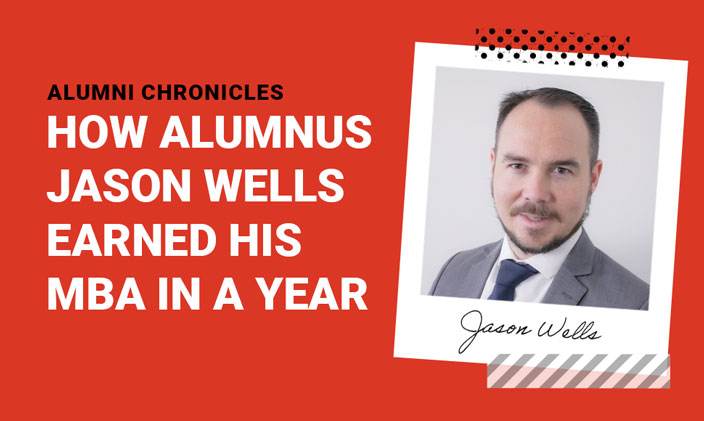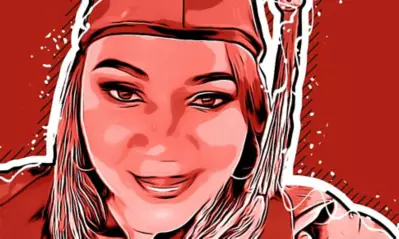Committed to becoming a conqueror

Written by Elizabeth Exline

“I am not a victim,” Treena Williams says with the practiced conviction of a warrior. “I am more than a survivor. I am a conqueror of domestic violence.”
As Williams says this, she’s sitting on the bucolic campus of the Delaware Valley Job Corps , where she teaches reading and other subjects to students looking to gain workforce-ready skills. Periodically, her face lights up with recognition as she waves to a passing student.
Williams has told her story many times and in many ways. She has written two books under the pseudonym Kitty Bey (Crossover and Flags VS Red Flags: Know the Difference
), and she has been featured with her son Deejay in an ESPN short film, Scarred
, which was directed by Martin Khodabakhshian for the critically acclaimed news magazine show “E:60”. She believes her story is for others to learn from as much as for herself, which is why she tells it with the kind of candor that might otherwise be surprising for the level of violence involved.
Today, as she sits under a brilliant blue October sky, she wears a tan hijab punctuated with a large, pearl clip. It’s a detail that feels symbolic. She converted to Islam seven years ago, and her hijab represents that transformation as much as the pearl clip nods to her love of beauty.
She is also anticipating her commencement ceremony over the coming weekend when her master’s degree will be conferred on her. This moment, as she pauses between degrees (she anticipates starting her doctoral degree in her pursuit to help other victims of domestic violence) underscores Williams’ reinvention from statistic to inspiration.
When a husband became an adversary
When Williams met her second husband, she’d already survived an abusive marriage and homelessness. What she found in her second husband seemed like a contrast to that life. He was good with her two children, one of whom was a basketball prodigy who would become the focus of the Scarred documentary. Williams and her second husband married. Eventually, they had three children of their own.
But Williams’ happy ending was not with her second husband. Occasionally, he physically abused her. On July 4, 2008, he stabbed her and then Deejay in the face.
Williams called the police but, like many other victims of domestic violence, she protected her then-husband. She claimed he’d only hit her the one time. The violence, she said, had never happened before.
Williams’ husband was incarcerated, and Williams and her son were put under an order of protection, meaning their abuser could have no contact with either of them. Later, when the filmmaker came to Williams’ house to shoot the documentary, he set down his camera, looked directly at Williams and asked her, “Are you ready to tell the truth?”
“I knew what he was talking about,” Williams says. “And I said, ‘Yep. [My ex-husband] abused me for 10 years.’”
Divine deliverance
Admitting what had happened was one step, but Williams’ journey from victim to conqueror of domestic violence involved many other highs and lows. She went on government assistance; she did her best to provide for her children.
Then, one day, she saw a commercial that changed her life.
“I was sitting at home, depressed, and a commercial came on,” Williams recalls. “[The character had] her baby in her lap, and she was depressed. She didn’t know when she would have her next meal or pay her bills. … Then she calls the school, and they showed her graduating, and that was it for me.”
Williams took it as a sign. She called University of Phoenix , connected instantaneously with her advisor, enrolled in the Bachelor of Science in Management
program and understood she was about to change her life.

“I knew this was going to be different from high school when I wasn’t even going to classes,” Williams says, grinning. “I said, ‘I’m gonna finish this,’ and my children, they watched me finish.”
Williams did more than finish, though. She completed her degree on July 4, 2021: 13 years to the day that her ex-husband had stabbed her, thereby transforming that painful anniversary into a positive one.
She also began speaking to women in North Africa, the Middle East and India about domestic violence. She wrote and published books. She got off government assistance. She completed her Master of Arts in Education/Adult Education and Training .
Here, she explains why education isn’t about opening doors for herself. It’s about finding ways to give back to others.
Why do you want to earn your doctorate?
Why stop at my master’s when I know I have so much to offer?
When I got my bachelor’s, it was definitely an accomplishment, but it was also that I needed to get a better job. Then, when I moved into my master’s degree, I knew that it would open more doors for me, but I knew it would also open doors for me to help other women and teenagers specifically.
So, the doctorate is just me having the credential to open up my own center for domestic violence, and that doctorate will be behind me, saying not only do I have the experience and I know how to help someone, but I also have the credential.
It is about giving back because I’ve lost so much time. I lost 10 years to abuse, so if I can save someone 10 years, then I’ve done what God would have me do because I believe that it’s God who really wants me to continue my education as well.
What do you want to research during your doctoral program?
I want to write my dissertation on domestic violence and how it begins in youth, from the pre-teenage years. It starts at 12, this idea of accepting bad behavior from a partner, bad behavior from a friend, bad behavior from your parents or sibling.
I want to prove that it starts there. And if we can catch it there, then we can probably change the face of domestic violence. We can change the outcome of domestic violence.
What might surprise readers to know about domestic violence?
It starts early, and it can affect anyone.
I was on a train in Brooklyn right after I came home from India. Every day, I would ride this train, and two preteens would get on together. Every day, the girl would slap the boy. He’d get upset, they’d laugh it off — and it would continue.
One day, she hit him harder than usual. He got upset and sat next to me. I was like, “Thank you, God.” I looked over at him, and I said to him, “If you put your hand on her, no one is ever going to believe that she slapped you every day for a week. You’re going to be in trouble, and you’re going to go to jail.”
He looked at me, and I said, “Run from her. She is a red flag.”
The next day, he got on the train by himself. When we caught each other’s eyes, he said, “Thank you.”
You have said that a person’s story isn’t for that person but for everyone else. What does your story say?
I tell my students that this lesson is not over until it’s learned. So, the takeaway from my story is the ability to show others how to overcome yourself.
I had to war against myself. And how do you war against yourself?
A lot of people hear “war against,” and they think “war against another country,” or “war against the person who is like you.”
The first enemy? Your first enemy is yourself, and so I had to war against myself. I had to look in the mirror and say, “You are not ugly. You are not stupid. You are not in poverty. You are not depressed. You are a great mother.”
And I had to fight against my own thoughts.
So, in hindsight, although I know my story is not for me, it’s for everyone else, but my story was for me too. It was to teach me how to be free. Freedom has little to do with chains on your arms and legs and jails. Freedom is a mental thing.
Despite all you endured, you managed to forgive your ex-husband. How?
Forgiveness is for me. It’s not for the other person. It’s almost like walking around with someone else’s stuff on you. When you don’t forgive, you’re walking around with their baggage.

ABOUT THE AUTHOR
Elizabeth Exline has been telling stories ever since she won a writing contest in third grade. She's covered design and architecture, travel, lifestyle content and a host of other topics for national, regional, local and brand publications. Additionally, she's worked in content development for Marriott International and manuscript development for a variety of authors.
This article has been vetted by University of Phoenix's editorial advisory committee.
Read more about our editorial process.
Read more articles like this:


